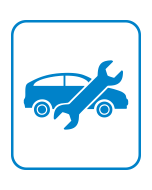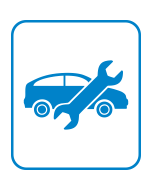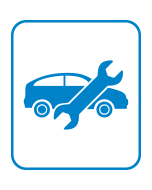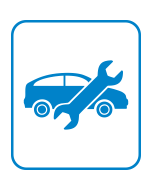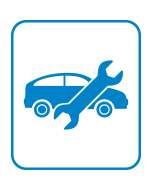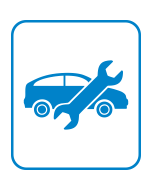Strategic Analysis of the Global Demand-Responsive Transit (DRT) Market, Forecast to 2030
Strategic Analysis of the Global Demand-Responsive Transit (DRT) Market, Forecast to 2030
50+ Cities Globally to Implement DRT Solutions by 2020
08-Jun-2018
Europe
Description
Traditional public transit modes have remained unchanged over decades and inherent flaws have remained unaddressed. The fixed-route and fixed-schedule model works efficiently on high-density routes but routes with lower demand and density along with demand at odd hours are not as efficiently catered to by traditional public transit. While alternate modes of single-occupancy transport, such as taxis, private hire vehicles, chauffeur-driven vehicles, and others have evolved, these are much more expensive as compared to public transit as they offer greater levels of convenience. Demand-responsive single-occupancy modes such as app-based taxis and ride hailing vehicles have further increased convenience levels. Even as single-occupancy mobility modes continue to transform and offer new business models, shared mobility is increasingly being hailed as the need of the hour. Congestion, pollution, parking, and overdependence on conventional fuel are a few of the urban mobility issues that need immediate attention. Efficient shared mobility that offers convenience along with increasing utilization of assets and the overall efficacy of the model would be instrumental in revolutionizing the mobility market.
With different mobility modes evolving efficiently over time, there is a pressing need for shared mobility modes such as public transit to transform its operating models. Special jitney and shuttle services have been able to capture a part of the demand but these have remained restricted to institutional and organizational use. The emergence of demand-responsive shuttles and buses has defined a new growth paradigm for shared mobility. These shuttles, which offer the convenience of private transportation at price points similar to public transport, operate similar to e-hailing taxi apps. The service providers have an app interface that passengers can use to hail a shuttle. Using algorithms and data analytics, these shuttles group passengers travelling in the same direction and take the shortest route possible to the destination.
The demand-responsive shuttle transit model was first introduced in Finland and was called Kutsuplus. Since 2013, a number of service providers have entered the market with regions such as North America, Asia Pacific, and Europe being the hotspots. Though still at a nascent stage of development, the market holds immense potential as passengers become more accepting of shared mobility modes and governments and cities take a number of measures to introduce efficient mobility options that are aligned with the concept of smart cities. Government mandates on issues such as bans on highly polluting commercial vehicles in city centers, electric vehicles, and congestion are expected to be the key drivers for the market. In the long term, the advent of autonomous shuttles is further expected to increase efficiency of the model at much lower costs.
Table of Contents
Key Findings
Evolution of Public Bus Transit Systems
Understanding the Evolving Bus Systems
Demand-Responsive Transit—Market Overview
Demand-Responsive Shuttles—Market Size Overview
DRT Pricing and Costing
Investments in the DRT Market
DRT Use Cases
Snapshot of Key Markets
Major Participants Shaping the Market
Global Demand-Responsive Shuttle Market—Key Participants
Current Market Scenario
Engaging Key Stakeholders to Enable Success of Demand Responsive Shuttle Services
DRT—Future Vehicle Design
Key Findings and Future Outlook
Associated Multimedia
Research Scope
Geographic Definitions and Research Timeline
Research Aims and Objectives
Research Background
Research Methodology
Demand-Responsive Transit—Market Overview
Demand-Responsive Transit—Market Definitions
Characteristics of Traditional Bus Transit Models
Factors Impacting Transition to a Demand-Responsive Transit Model
Evolution towards Demand-Responsive Transit
Demand-Responsive Shuttle—How they Fit into Transport Systems
Average Fare Comparison—Public Transport v/s DRT v/s Taxis
The Concept of Demand-Responsive Transit
Demand-Responsive Transit Segments—Fixed Model
Demand-Responsive Transit Segments—Dynamic Model
Pricing Models
Cost Comparison—Fixed Route v/s Dynamic Route
Cost Analysis—Sam Trans’s Case Study
Stakeholder and Player Ecosystem
Demand-Responsive Shuttle Market—Key Participant Groups
Global Demand-Responsive Shuttle Market—Key Participants
Key Developments Catalyzing the Market
Company Snapshot—Chariot
Company Snapshot—Shuttl
Company Snapshot—Tuup’s On-Demand Mobility App, Kyyti
VTA Flex
Beeline
Company Snapshot—TransLoc, BestMile, and RideCell
OEMs’ DRT Strategies
Implications of the Demand-Responsive Shuttle Transit Model
Diversifying Customer Base
Demand-Responsive Shuttle Market—Global Snapshot
DRT Market North America—Frost & Sullivan Scenario
DRT Market Europe—Frost & Sullivan Scenario
DRT Market Asia Pacific—Frost & Sullivan Scenario
DRT Market Latin America—Frost & Sullivan Scenario
DRT Market Africa—Frost & Sullivan Scenario
DRT as a Percent of Shared Vehicles—Frost & Sullivan Scenario
Key Themes Defining Demand-Responsive Shuttle Transit
Market Drivers
Market Restraints
Data Analytics in DRT
Technology Trends—Electric Shuttles
Autonomous Technology as Catalyst for Demand-Responsive Transit
Operating Model of Demand-Responsive Autonomous Shuttle Transit
Case Study—BestMile
DRT—Future Vehicle Design
Autonomous Shuttle Pilots—Global Snapshot
Growth Opportunity—Building the case for Demand-Responsive Shuttles
Strategic Imperatives for Success and Growth
Key Conclusions and Future Outlook
3 Big Predictions
Legal Disclaimer
List of Exhibits
Global Footprint of Demand-Responsive Shuttle Services
Abbreviations and Acronyms Used
Market Engineering Methodology
- 1. Demand-Responsive Shuttle Market: Key Takeaways, Global, 2017
- 2. Demand-Responsive Shuttle Market: Investments in DRT Market, Global, 2017
- 3. Demand-Responsive Shuttle Market: Use Cases, Global, 2017
- 4. Demand-Responsive Shuttle Market: Key Participants, Global, 2017
- 5. Demand-Responsive Shuttle Market: Current and Future Outlook, Global, 2017 and 2030
- 6. Demand-Responsive Shuttle Market: Key Industry Participants, Global, 2017
- 7. Demand-Responsive Shuttle Market: Cost Comparison, Global, 2018–2030
- 8. Demand-Responsive Shuttle Market: Key Participants, Global, 2017
- 9. Demand-Responsive Shuttle Market: Beeline Key Metrics, Global, 2017
- 10. Demand-Responsive Shuttle Market: Key Market Drivers, Global, 2018–2030
- 11. Demand-Responsive Shuttle Market: Key Market Restraints, Global, 2018–2030
- 1. Demand-Responsive Shuttle Market: Evolution of Public Transit, Global, 1833–2017
- 2. Demand-Responsive Shuttle Market: Market Overview, Global, 2017
- 3. Demand-Responsive Shuttle Market: Market Overview, Global, 2017
- 4. Demand-Responsive Shuttle Market: Pricing and Cost Structure, Global, 2017
- 5. Demand-Responsive Shuttle Market: Market Metrics and Key Markets, Global, 2017
- 6. Demand-Responsive Shuttle Market: Market Developments, Global, 2017
- 7. Demand-Responsive Shuttle Market: Market Overview, Global, 2017
- 8. Demand-Responsive Shuttle Market: Traditional Bus Transit Models, Global, 2018–2030
- 9. Demand-Responsive Shuttle Market: Behavioral Changes Driving Transformations in the Transit Market, Global, 2017
- 10. Demand-Responsive Shuttle Market: Operating Models, Global, 2017
- 11. Average Fare Comparison of Public Transport in Key Cities—DRT & Taxis, Global, 2017
- 12. Demand-Responsive Shuttle Market: Demand Responsive Transit Concept, Global, 2018–2030
- 13. Demand-Responsive Shuttle Market: Transit Models—Fixed Model, Global, 2017
- 14. Demand-Responsive Shuttle Market: Transit Models—Dynamic Model, Global, 2017
- 15. Demand-Responsive Shuttle Market: Pricing Models, Global, 2017
- 16. Demand-Responsive Shuttle Market: Case Study, Global, 2017
- 17. Demand-Responsive Shuttle Market: Key Market Participants, Global, 2017
- 18. Demand-Responsive Shuttle Market: VTA Flex, Global, 2017
- 19. Demand-Responsive Shuttle Market: Long-term Implications, Global, 2017
- 20. Demand-Responsive Shuttle Market: Expanding Customer Base, Global, 2017
- 21. Demand-Responsive Shuttle Market: Fleet Size, Global, 2016–2030
- 22. Demand-Responsive Shuttle Market: Fleet Size and Total Number of Rides, NA, 2016–2030
- 23. Demand-Responsive Shuttle Market: Fleet Size and Total Number of Rides, Europe, 2016–2030
- 24. Demand-Responsive Shuttle Market: Fleet Size and Total Number of Rides, Latin America, 2016–2030
- 25. Demand-Responsive Shuttle Market: Fleet Size and Total Number of Rides, Africa, 2016–2030
- 26. Demand-Responsive Shuttle Market: Fleet Size and Penetration Rate, Global, 2016–2030
- 27. Demand-Responsive Shuttle Market: Impact of Autonomous Shuttles, Global, 2017
- 28. Demand-Responsive Shuttle Market: Key Conclusions, Global, 2017
- 29. Demand-Responsive Shuttle Market: Key Market Participants, Global, 2017
Popular Topics
| No Index | No |
|---|---|
| Podcast | No |
| Table of Contents | | Executive Summary~ || Key Findings~ || Evolution of Public Bus Transit Systems~ || Understanding the Evolving Bus Systems~ || Demand-Responsive Transit—Market Overview~ || Demand-Responsive Shuttles—Market Size Overview~ || DRT Pricing and Costing~ || Investments in the DRT Market~ || DRT Use Cases~ || Snapshot of Key Markets~ || Major Participants Shaping the Market~ || Global Demand-Responsive Shuttle Market—Key Participants~ || Current Market Scenario~ || Engaging Key Stakeholders to Enable Success of Demand Responsive Shuttle Services~ || DRT—Future Vehicle Design~ || Key Findings and Future Outlook~ || Associated Multimedia~ | Research Scope, Objectives, Background, and Methodology~ || Research Scope~ || Geographic Definitions and Research Timeline~ || Research Aims and Objectives~ || Research Background~ || Research Methodology~ | Definitions and Segmentation~ || Demand-Responsive Transit—Market Overview~ || Demand-Responsive Transit—Market Definitions~ | Introduction to the Demand-Responsive Shuttle Market~ || Characteristics of Traditional Bus Transit Models~ || Factors Impacting Transition to a Demand-Responsive Transit Model~ || Evolution towards Demand-Responsive Transit~ || Demand-Responsive Shuttle—How they Fit into Transport Systems~ || Average Fare Comparison—Public Transport v/s DRT v/s Taxis~ || The Concept of Demand-Responsive Transit~ || Demand-Responsive Transit Segments—Fixed Model~ || Demand-Responsive Transit Segments—Dynamic Model~ || Pricing Models~ || Cost Comparison—Fixed Route v/s Dynamic Route~ || Cost Analysis—Sam Trans’s Case Study~ | Market Landscape~ || Stakeholder and Player Ecosystem~ || Demand-Responsive Shuttle Market—Key Participant Groups~ || Global Demand-Responsive Shuttle Market—Key Participants~ || Key Developments Catalyzing the Market~ || Company Snapshot—Chariot~ || Company Snapshot—Shuttl~ || Company Snapshot—Tuup’s On-Demand Mobility App, Kyyti~ || VTA Flex~ || Beeline~ || Company Snapshot—TransLoc, BestMile, and RideCell~ || OEMs’ DRT Strategies~ || Implications of the Demand-Responsive Shuttle Transit Model~ || Diversifying Customer Base~ | Global and Regional Analysis of the Demand-Responsive Shuttle Market~ || Demand-Responsive Shuttle Market—Global Snapshot~ || DRT Market North America—Frost & Sullivan Scenario~ || DRT Market Europe—Frost & Sullivan Scenario~ || DRT Market Asia Pacific—Frost & Sullivan Scenario~ || DRT Market Latin America—Frost & Sullivan Scenario~ || DRT Market Africa—Frost & Sullivan Scenario~ || DRT as a Percent of Shared Vehicles—Frost & Sullivan Scenario~ | Drivers and Restraints—Demand-Responsive Shuttle Market~ || Key Themes Defining Demand-Responsive Shuttle Transit~ || Market Drivers~ || Market Restraints~ | Impact of Technology~ || Data Analytics in DRT~ || Technology Trends—Electric Shuttles~ || Autonomous Technology as Catalyst for Demand-Responsive Transit~ || Operating Model of Demand-Responsive Autonomous Shuttle Transit~ || Case Study—BestMile~ || DRT—Future Vehicle Design~ || Autonomous Shuttle Pilots—Global Snapshot~ | Growth Opportunities and Companies to Action~ || Growth Opportunity—Building the case for Demand-Responsive Shuttles~ || Strategic Imperatives for Success and Growth~ | Conclusions and Future Outlook~ || Key Conclusions and Future Outlook~ || 3 Big Predictions~ || Legal Disclaimer~ | Appendix~ || List of Exhibits~ || Global Footprint of Demand-Responsive Shuttle Services~ || Abbreviations and Acronyms Used~ || Market Engineering Methodology~ |
| List of Charts and Figures | 1. Demand-Responsive Shuttle Market: Key Takeaways, Global, 2017~ 2. Demand-Responsive Shuttle Market: Investments in DRT Market, Global, 2017~ 3. Demand-Responsive Shuttle Market: Use Cases, Global, 2017~ 4. Demand-Responsive Shuttle Market: Key Participants, Global, 2017~ 5. Demand-Responsive Shuttle Market: Current and Future Outlook, Global, 2017 and 2030~ 6. Demand-Responsive Shuttle Market: Key Industry Participants, Global, 2017~ 7. Demand-Responsive Shuttle Market: Cost Comparison, Global, 2018–2030 ~ 8. Demand-Responsive Shuttle Market: Key Participants, Global, 2017~ 9. Demand-Responsive Shuttle Market: Beeline Key Metrics, Global, 2017~ 10. Demand-Responsive Shuttle Market: Key Market Drivers, Global, 2018–2030~ 11. Demand-Responsive Shuttle Market: Key Market Restraints, Global, 2018–2030~| 1. Demand-Responsive Shuttle Market: Evolution of Public Transit, Global, 1833–2017~ 2. Demand-Responsive Shuttle Market: Market Overview, Global, 2017~ 3. Demand-Responsive Shuttle Market: Market Overview, Global, 2017~ 4. Demand-Responsive Shuttle Market: Pricing and Cost Structure, Global, 2017~ 5. Demand-Responsive Shuttle Market: Market Metrics and Key Markets, Global, 2017~ 6. Demand-Responsive Shuttle Market: Market Developments, Global, 2017~ 7. Demand-Responsive Shuttle Market: Market Overview, Global, 2017~ 8. Demand-Responsive Shuttle Market: Traditional Bus Transit Models, Global, 2018–2030 ~ 9. Demand-Responsive Shuttle Market: Behavioral Changes Driving Transformations in the Transit Market, Global, 2017~ 10. Demand-Responsive Shuttle Market: Operating Models, Global, 2017~ 11. Average Fare Comparison of Public Transport in Key Cities—DRT & Taxis, Global, 2017~ 12. Demand-Responsive Shuttle Market: Demand Responsive Transit Concept, Global, 2018–2030 ~ 13. Demand-Responsive Shuttle Market: Transit Models—Fixed Model, Global, 2017~ 14. Demand-Responsive Shuttle Market: Transit Models—Dynamic Model, Global, 2017~ 15. Demand-Responsive Shuttle Market: Pricing Models, Global, 2017~ 16. Demand-Responsive Shuttle Market: Case Study, Global, 2017~ 17. Demand-Responsive Shuttle Market: Key Market Participants, Global, 2017~ 18. Demand-Responsive Shuttle Market: VTA Flex, Global, 2017~ 19. Demand-Responsive Shuttle Market: Long-term Implications, Global, 2017~ 20. Demand-Responsive Shuttle Market: Expanding Customer Base, Global, 2017~ 21. Demand-Responsive Shuttle Market: Fleet Size, Global, 2016–2030~ 22. Demand-Responsive Shuttle Market: Fleet Size and Total Number of Rides, NA, 2016–2030~ 23. Demand-Responsive Shuttle Market: Fleet Size and Total Number of Rides, Europe, 2016–2030~ 24. Demand-Responsive Shuttle Market: Fleet Size and Total Number of Rides, Latin America, 2016–2030~ 25. Demand-Responsive Shuttle Market: Fleet Size and Total Number of Rides, Africa, 2016–2030~ 26. Demand-Responsive Shuttle Market: Fleet Size and Penetration Rate, Global, 2016–2030~ 27. Demand-Responsive Shuttle Market: Impact of Autonomous Shuttles, Global, 2017~ 28. Demand-Responsive Shuttle Market: Key Conclusions, Global, 2017~ 29. Demand-Responsive Shuttle Market: Key Market Participants, Global, 2017~ |
| Author | Albert Geraldine Priya |
| Industries | Automotive |
| WIP Number | MD5A-01-00-00-00 |
| Keyword 1 | DRT |
| Is Prebook | No |
| GPS Codes | 9673-A6,9800-A6,9807-A6,9965-A6,9A57-A6,9AF6-A6 |
 USD
USD GBP
GBP CNY
CNY EUR
EUR INR
INR JPY
JPY MYR
MYR ZAR
ZAR KRW
KRW THB
THB